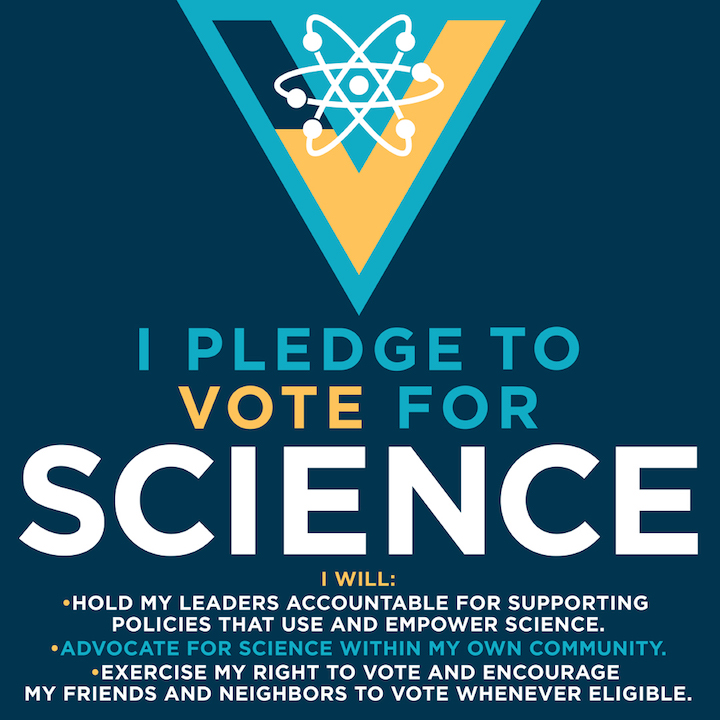Remember the March for Science last April? National organizers are making the next logical step that every anti-Trumpist protest movement must now make, turning all that marching into voting.
In an e-mail to supporters, Vote for Science calls on science advocates (and that should be all of us who depend on agriculture, electricity, health care…) to engage in a variety of activities to keep science on top of everyone’s mind when voting:
- Have conversations with our communities about why science and science policy matter in our lives.
- Keep in touch with our elected officials at every level, holding them accountable and making sure they know we’re paying attention when they make decisions that affect science, science policy, and our communities.
- Help register more voters, and remind our friends, families, and fellow community members to go to the polls [March for Science, e-mail to supporters, 2017.11.10].
In South Dakota, those activities translate most immediately into keeping tabs on our sometimes anti-science Legislature. Sure, they approved a more statistically rigorous (though practically easier!) method of validating petitions last spring… though I estimate with 95% confidence and a margin of error of ±3.62% that 95 of the 101 legislators who voted for House Bill 1035 (see Sections 7 and 8) understood or noticed the statistical methodology for which they voted. The 2017 Legislature also greenlighted Northern’s 25-million-dollar science building, although they didn’t commit any state dollars to the project.
Vote for Science activists in Pierre will more likely be fighting anti-science bills from Senator Monroe, who has tried for four years in a row to shove his religion into South Dakota’s science classrooms. We may also see the need for intelligent testimony about the damage caused by new dicamba herbicides to counter Monsanto’s pushback against scientists.
Once we get clear of the 2018 Session, we can turn to our candidates for Legislature, Governor, and U.S. House, and ask them where they stand on science issues. Then we can reverse the 2016 trend and let our scientifically oriented super-egos have a little more say than our Trumpian ids (ah, science, specifically psychology, explaining politics).